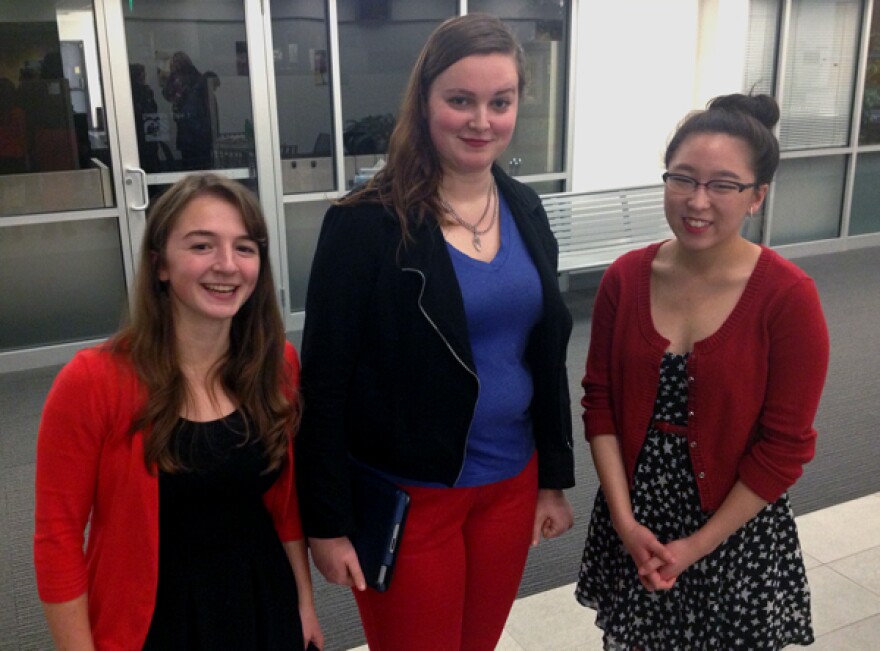Anchorage School District officials presented the 2014-15 budget to the Anchorage School Board Thursday evening.
The district faces cutting $23 million this year unless the legislature increases the per student funding.
Public testimony was passionate and officials discussed calculations for how much legislators would have to increase funding to stop cuts.
Tina Bernoski, an English Language Learner Counselor at Bartlett High School said she couldn't believe that the Board was considering cutting school counselors again. She says she worries about what will happen if some of the most vulnerable students in the district lose support and warned school board members that things could get bad.
"Many of my students do not speak English, do not have a parent that speaks English,” Bernoski said. “We are the case managers, the refugee liaisons, the immigration collectors and the parent to communicate with. I will tell you that dropout rates will increase and graduation rates will dramatically reduce."
ASD officials rolled out the proposed 2014-2015 budget Tuesday. Under the plan, the district will cut more than 200 positions, more than half of them teaching positions. Administration and support positions will also be eliminated. In addition, high school schedules will now have seven periods, instead of six to save money.
Allison Haynes, a sophomore at West High School, says she's concerned that the change will compromise her education.
"A seven-period day will not allow for the kind of time that is needed for intense, higher-level classes, or any class for that matter, to be taught effectively,” Haynes said. “I am currently in calculus, AP U.S. History and HG English. I see no way that my wonderful, dedicated teachers could possibly deliver the same quality of instruction in a 42 minute period."
Officials say cost drivers include: group medical coverage, the Affordable Care Act, new state technology requirements for online testing and teacher evaluations, liability and self-insurance and natural gas prices.
Governor Sean Parnell is recommending a base student allocation increase of $200 over three years, an increase of about one percent per year. School Board President Tam Agosti-Gisler says that's not enough.
"We've been asked, what would we need in order to stop our budget gap this year, in terms of dollar increase to the base student allocation and that is estimated at about $250 increase. To catch up with inflation for the last three years and this year, it's about $400."
Agosti-Gisler says a long-term solution is needed in the form of an inflation-proof formula for funding Schools.
The next opportunity for the public to testify on the ASD budget will be Feb. 3. They'll be one more chance on Feb. 20, when the board will take their final vote.

